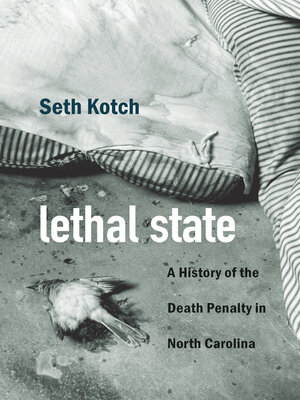Lethal State
ebook ∣ A History of the Death Penalty in North Carolina · Justice, Power, and Politics
By Seth Kotch

Sign up to save your library
With an OverDrive account, you can save your favorite libraries for at-a-glance information about availability. Find out more about OverDrive accounts.
Find this title in Libby, the library reading app by OverDrive.



Search for a digital library with this title
Title found at these libraries:
| Library Name | Distance |
|---|---|
| Loading... |
For years, American states have tinkered with the machinery of death, seeking to align capital punishment with evolving social standards and public will. Against this backdrop, North Carolina had long stood out as a prolific executioner with harsh mandatory sentencing statutes. But as the state sought to remake its image as modern and business-progressive in the early twentieth century, the question of execution preoccupied lawmakers, reformers, and state boosters alike.
In this book, Seth Kotch recounts the history of the death penalty in North Carolina from its colonial origins to the present. He tracks the attempts to reform and sanitize the administration of death in a state as dedicated to its image as it was to rigid racial hierarchies. Through this lens, Lethal State helps explain not only Americans' deep and growing uncertainty about the death penalty but also their commitment to it.
Kotch argues that Jim Crow justice continued to reign in the guise of a modernizing, orderly state and offers essential insight into the relationship between race, violence, and power in North Carolina. The history of capital punishment in North Carolina, as in other states wrestling with similar issues, emerges as one of state-building through lethal punishment.
In this book, Seth Kotch recounts the history of the death penalty in North Carolina from its colonial origins to the present. He tracks the attempts to reform and sanitize the administration of death in a state as dedicated to its image as it was to rigid racial hierarchies. Through this lens, Lethal State helps explain not only Americans' deep and growing uncertainty about the death penalty but also their commitment to it.
Kotch argues that Jim Crow justice continued to reign in the guise of a modernizing, orderly state and offers essential insight into the relationship between race, violence, and power in North Carolina. The history of capital punishment in North Carolina, as in other states wrestling with similar issues, emerges as one of state-building through lethal punishment.







